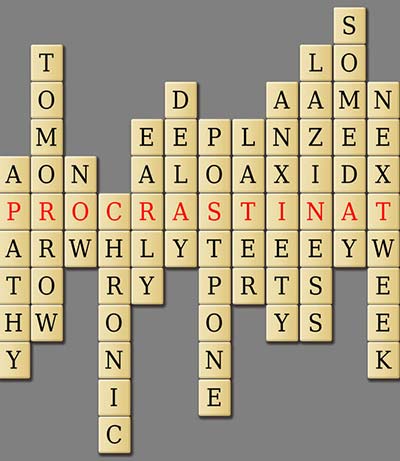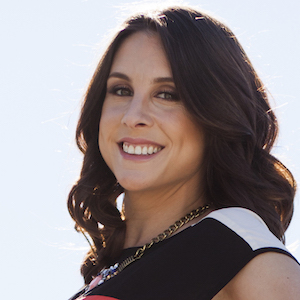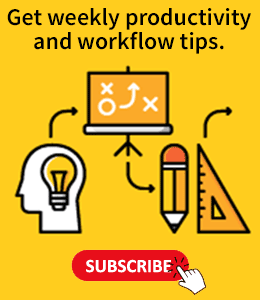How to Solve The Procrastination Puzzle
By Deanna deBara ![]() | Published July 20, 2021
| Published July 20, 2021
If you’ve ever found yourself trapped in the procrastination puzzle—pushing off tedious, stressful, or unwanted tasks off for what seems like an infinity—you’re not alone. According to a 2019 survey, a whopping 88 percent of knowledge workers procrastinate at least one hour per day.
Procrastination is incredibly common—but it’s also incredibly unhelpful. Procrastination doesn’t make unwanted tasks go away. It just prolongs the time those tasks are on your to-do list, which can increase stress—and cause productivity to take a nosedive.
If you want to be your most effective, productive self, you need to figure out a way to solve the procrastination puzzle. But how, exactly, do you do that?
Let’s take a look at four strategies you can use to kick procrastination to the curb—and get those nagging tasks off your to-do list once and for all:
Enlist the help of an accountability partner
It’s easy to keep procrastinating when you’re the only one who knows you’re pushing things off. So, if you want to stop procrastinating, one of the best things you can do? Enlist the help of an accountability partner.
According to a study from the American Society of Training and Development (outlined in a 2018 Entrepreneur article), you are 65 percent more likely to hit a goal if you commit to achieving that goal to another person. So, if your goal is to stop procrastinating, letting someone know (like a co-worker or mentor) will help create some external accountability—and that accountability will make it harder to keep procrastinating. (It’s much harder to push off a task if you know your accountability partner is going to be checking in to see if you’ve finished it!)
Break down large to-do’s into smaller, more manageable tasks...
People tend to procrastinate when they’re feeling overwhelmed; when a task or project feels too large, complex, or unmanageable, pushing it off can seem easier (and less stressful) than putting in the time and energy necessary to figure it out and get things done.
Luckily, if overwhelm is what’s driving your procrastination, there’s a straightforward solution. Breaking that large, overwhelming, and unmanageable task into smaller, less overwhelming, and more manageable tasks.
For example, let’s say you’re supposed to give a presentation on your team’s new sales strategy at your next all-hands meeting—and you’ve been putting it off. Instead of looking at the presentation as a whole—break it down into smaller, easier-to-accomplish tasks, like creating a PowerPoint template for your slides, drafting bullet points to outline your strategy, and emailing your sales reps for examples of the strategy in action to include in your presentation.
 Bottom line? Breaking down large tasks or projects into smaller, more manageable to-do’s can make the entire process feel less overwhelming—and will make you less likely to procrastinate.
Bottom line? Breaking down large tasks or projects into smaller, more manageable to-do’s can make the entire process feel less overwhelming—and will make you less likely to procrastinate.
...and reward yourself when you complete each task
Breaking down larger tasks into smaller to-do’s is a great step towards solving the procrastination puzzle. But if you really want to deliver a procrastination-busting boost? Reward yourself—and reward yourself immediately—every time you cross one of those smaller tasks off your to-do list.
Researchers from Cornell found that when people were given an immediate reward for completing small tasks, they experienced an increase in motivation. So, when you reward yourself when you check a small task off your to-do list, you’ll give yourself a boost of motivation to tackle the next task, keeping your procrastination in check and empowering you to get things done.
So, when you break down a large project into smaller tasks, make sure you’re rewarding yourself every time you complete one of those small tasks, whether that’s treating yourself to your favorite coffee or going for a walk in nature. Those rewards will keep you motivated—and before you know it, all your small tasks (and your larger project!) will be complete.
Take a deeper look at what you’re procrastinating—and why
Procrastination isn’t a productive habit. But sometimes, what you’re procrastinating—and why—can give you key insights that can ultimately make you happier and more productive at work.
For example, let’s say you’ve recently been transferred to a new team—and you’ve been procrastinating scheduling one-on-one’s with your new manager and colleagues. In that scenario, you could be pushing off the meetings because you’re feeling nervous or apprehensive about the change—in which case, scheduling a chat with your mentor might be helpful. Or let’s say you’re a designer juggling multiple projects—and no matter how hard you try, you can’t get yourself to dive into a particular project. In that case, your procrastination could be a red flag that that particular project isn’t quite the right fit for you, or you already have too much project work on your plate. In which case, you might consider talking to your supervisor to see if there’s any way to get the project reassigned to another designer.
The point is, procrastination, as a whole, isn’t helpful. But if you dig into what and why you’re procrastinating, it can give you helpful insights—which you can then use to become more productive overall.
Use these strategies to crack the procrastination puzzle and be more productive
Procrastination can be a puzzling, productivity-killing experience. But with these strategies, you have everything you need to stop pushing things off, get things done, and (finally!) solve the procrastination puzzle. So what are you waiting for? Get out there and kick procrastination to the curb—and become your most productive self in the process.
Tags
productivity procrastination puzzle strategy business strategy
Categories
Productivity Tips

Deanna deBara
Deanna deBara is an entrepreneur, speaker, and freelance writer who specializes in business and productivity topics. When she's not busy writing, she enjoys hiking and exploring the Pacific Northwest with her husband and dog. See more of her work and learn more about her services at deannadebara.com.
